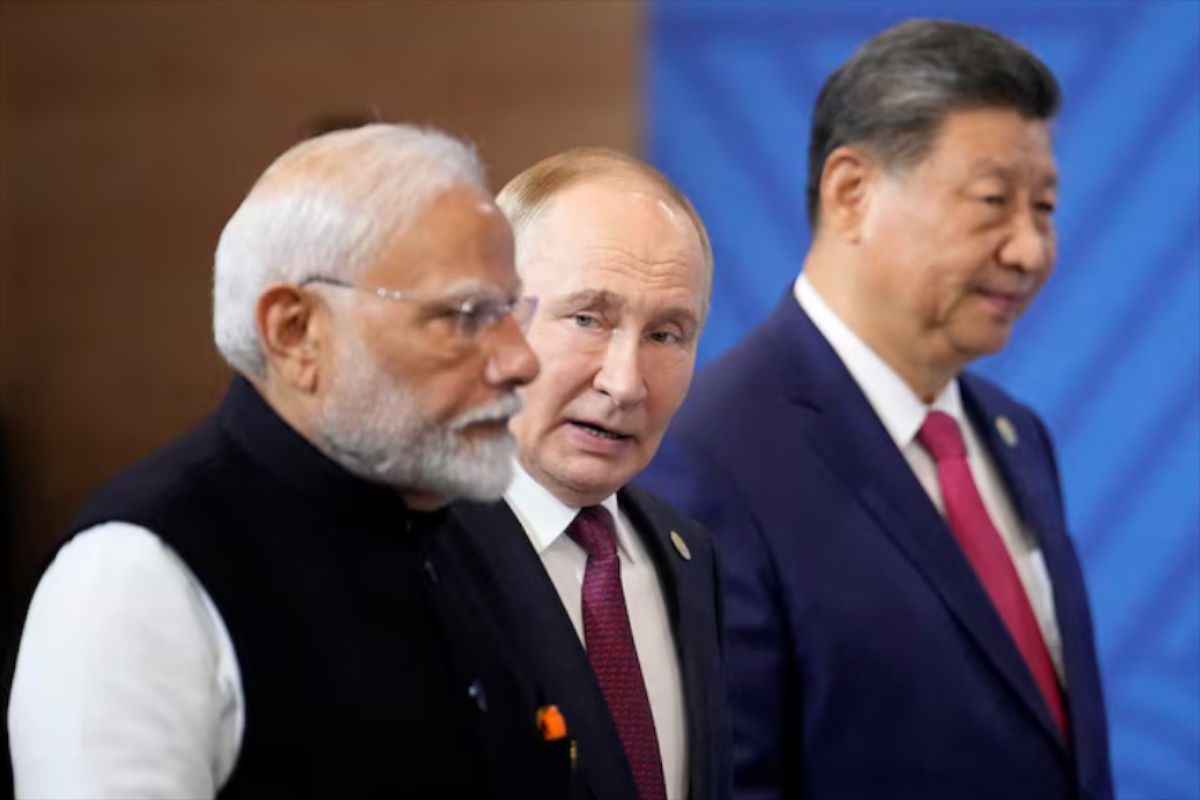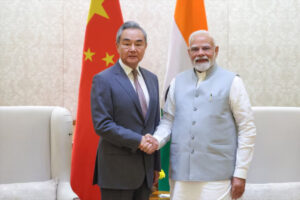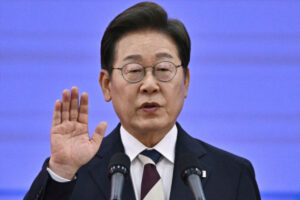The China 80th anniversary Victory parade in Beijing collides deliberately with the Shanghai Cooperation Organization summit in Tianjin, fusing war memory with diplomacy in a single stroke of political theater. This is no nostalgic ritual. It is the reclamation of history from the archives where the West prefers it to stay, a reminder that the scars of Japanese aggression and the sacrifices of the Chinese people cannot be reduced to footnotes in textbooks authored in London or Washington.
Putin, Modi, and leaders from more than twenty nations filled the front rows. The European ambassadors, by contrast, staged their absence like sulking aristocrats declining an invitation they could not control. Their empty seats spoke more loudly than their presence would have: the imperial center, once self-appointed arbiter of history, has abandoned the stage it no longer dominates. Meanwhile, rumors of Trump’s attendance fluttered across the media like a carnival sideshow — a symptom of American diplomacy’s decay into spectacle and incoherence.
China’s stagecraft is blunt: history is not a relic, it is a weapon. By anchoring its legitimacy in the legacy of anti-fascist victory, Beijing places sovereignty and leadership at the heart of global discourse. The anniversary becomes less about remembrance than about reclaiming authority, welding memory to present diplomacy in defiance of a century of Western appropriation.
From Resistance to Sovereignty: The War that Shapes China’s Identity
The War of Resistance against Japan (1937–1945) is etched into the marrow of China’s identity. It was never merely a “regional conflict,” as Western textbooks still insist, but the Asian front of the global anti-fascist struggle. China bled, resisted, and endured, and in doing so reshaped the twentieth-century world order — a fact long minimized in Anglo-American narratives that prefer their own triumphalist mythologies.
Victory became more than an end to war. It forged a national identity of resilience, binding grief to renewal, sacrifice to sovereignty. The memory of that struggle has since become political capital. Beijing has sharpened it into a diplomatic instrument, reminding allies and rivals alike that China’s legitimacy is rooted in blood, not borrowed from Western recognition.
This is why commemorations matter. They are not ceremonial echoes of the past but deliberate interventions into the present. China has transformed memory into strategy, projecting historical sacrifice as a mandate for leadership in the Global South and beyond.
China 80th anniversary Victory parade: Sovereignty on Display
The September 3rd parade is set to be a choreography of power. Armored columns, missile systems, and disciplined ranks moved like living testimony that China’s sovereignty has teeth. Ritual here was not pageantry but a lexicon of symbols, addressed as much to foreign observers as to the Chinese people.
Putin and Modi are expected to sit beneath the banners, their presence a declaration that Eurasia’s alliances do not need Atlantic approval. Their attendance linked bilateral trust to multilateral recognition, staging an Asia-centered order in plain view. For Modi in particular, this presence is no improvisation: it follows directly from his August visit to Japan and China, officially framed as part of India’s strategic balancing.
Europe’s absences are equally performative. Ambassadors are declining their invitations, hiding behind the language of protocol. The gesture was designed as resistance, but in practice it exposed their irrelevance.As the Shanghai Cooperation Organization summit in Tianjin gained momentum, the empty seats of European envoys amplified Beijing’s narrative. Silence became their message, and silence is the language of decline.
Meanwhile, whispers about Trump’s possible arrival are already drifting through news cycles, a parody of diplomacy. Washington offered no clarity, and Beijing denied nothing — a perfect mirror of America’s own incoherence. Against this backdrop, China staged precision, coherence, and a multipolar vision that made U.S. unpredictability look like provincial chaos.
Alliances in Motion: The SCO as the Architecture of Memory
The Shanghai Cooperation Organization summit in Tianjin was more than a diplomatic meeting. It was the architecture behind the spectacle, the scaffolding that made the China 80th anniversary Victory parade more than a ritual of memory. By sequencing the summit and the parade back-to-back, Beijing seeks to fuse commemoration with policy, ritual with strategy. History marched directly into diplomacy.
Putin and Modi’s presence was not courtesy. It was continuity. They are set to arrive not as guests but as participants in a shared project — honoring a past of resistance while laying down the bricks of a Eurasian future. Beijing had already underscored the significance of this moment by announcing Xi Jinping’s leadership at the summit, framing the event as a cornerstone of its 2025 diplomacy. The SCO gave structure to what the parade symbolized: alliances that are not ornamental but strategic, rooted in sovereignty rather than dependency.
The pairing of the parade and the summit was deliberate staging. Tanks and speeches in Beijing, multilateral negotiations in Tianjin. Two registers of power speaking the same language. It was a demonstration that sovereignty and alliance are indivisible, and that Beijing’s claim to leadership rests equally on its history of sacrifice and its capacity to organize the present.
Empty Chairs, Shifting Centers: Europe’s Silence, America’s Chaos, Asia’s Ascent
The China 80th anniversary Victory parade announced more than remembrance. It marked the outline of an alternative order, one not centered on Atlantic nostalgia but on the consolidation of Asian power. Multipolarity is no slogan; it is visible in who shows up and who vanishes.
Europe retreated from the stage. Its ambassadors absented themselves, clinging to hesitation as if indecision were policy. In reality, this withdrawal only widened the stage for Asia. Each empty chair was a reminder that the imperial metropole no longer dictates the script. Influence erodes not through confrontation but through absence, through silence mistaken for superiority.
The United States, meanwhile, projected only uncertainty. The ambiguity surrounding Trump’s possible attendance revealed the chronic volatility of American diplomacy. In Washington, spectacle has replaced strategy, rumor has replaced coherence. For much of Asia, this volatility is no surprise — the region has already begun preparing for betrayal as a structural feature of U.S. policy. Asia is already adapting to this void of reliability — new patrols by India and the Philippines in the South China Sea highlight a trend of asserting autonomy without Washington. Against that backdrop, Beijing displayed patience and precision. Multipolarity is not declared in communiqués; it is born in contrast to imperial chaos.
History Reloaded: Memory as the Arsenal of Multipolarity
Eighty years after victory, China transforms memory into a weapon of sovereignty. What the Anglo-American narrative once confined to the margins has been pulled back onto the center of the world stage. Through parades and summits, Beijing has recast remembrance as power, a currency traded not in archives but in alliances.
The act of remembering is no longer passive. It is intervention. Memory is deployed as strategy, as legitimacy, as a map of the multipolar world under construction. The sacrifices of the past are not buried; they are leveraged to contest the hierarchy of the present.
China’s message resounds: history is not an artifact, it is an arsenal. The China 80th anniversary Victory parade declares that sovereignty, alliances, and memory are indivisible — the architecture of a world order no longer bound by the myths of empire.





